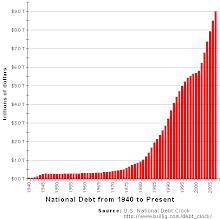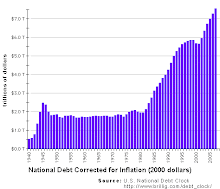In the April 29, 2010 article "Obama to name Yellen as Fed's No. 2," Associated Press writer Darlene Superville reports:
WASHINGTON – Putting a bigger stamp on the Federal Reserve, President Barack Obama is set to name Janet Yellen as vice chairwoman of the central bank and fill two other vacancies on the board, which has enormous power over Americans' pocketbooks.
The nominations are subject to Senate approval. If the Senate confirms all three nominees, Obama will have appointed five of the seven members of the Federal Reserve Board.
Obama's moves come as the Fed, whose decisions influence economic activity, employment and inflation, is facing political and economic challenges.
The Fed is steering the economy out of the worst recession since the 1930s, and legislation to overhaul the financial system would eliminate some of the Fed's authority while giving it new responsibilities. Some lawmakers think the Fed overstepped its authority by bailing out some big financial firms during the 2008 financial crisis.
Fed interest rate decisions affect the rates consumers pay on home mortgages and other consumer and business loans. On Wednesday, the Fed ended a two-day meeting by sticking to its pledge to hold rates at historic lows for an "extended period" to help energize the recovery.
Yellen is president of the Federal Reserve Bank of San Francisco. As vice chair, the second-highest ranking Fed official, her duties would include helping build support for policy positions staked out by Fed Chairman Ben Bernanke, who has begun a second term.
Obama also is expected to nominate Sarah Raskin and Peter Diamond to the Fed board. Raskin is the Maryland commissioner of financial regulation. Diamond is an economist at the Massachusetts Institute of Technology.
An official with advance knowledge of the moves spoke to The Associated Press on condition of anonymity because the announcement was pending.
Yellen was a top adviser to President Bill Clinton and is considered a dove on monetary policy. That means she would be expected to be more concerned about high unemployment, currently holding at 9.7 percent nationally, than about rising inflation.
She would succeed Donald Kohn, who plans to depart at the end of June. Kohn has been a member of the Fed board since 2002.
Yellen and Diamond, who is an authority on Social Security, pensions and taxation, are Ph.D. economists. With Kohn's departure, the Fed would have just one professional economist, Bernanke. Of its other current members, Daniel Tarullo was a Georgetown University law professor, Kevin Warsh brought Wall Street experience and Elizabeth Duke was a banker. Warsh and Duke were nominated by President George W. Bush.
Raskin, who served as counsel to the Senate Banking Committee, would expand the Fed's expertise over financial regulation. That would include consumer issues, which are important to Obama and Congress as they seek to impose tighter oversight on the financial industry.
___
On the Net:
Federal Reserve: http://www.federalreserve.gov






